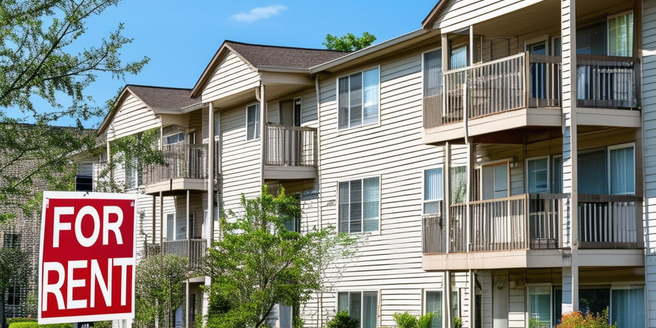Government Policies Tackling High Rent Problems

Understanding the Root Causes of High Rent
High rent prices are driven by a multitude of factors including limited housing supply, increasing demand, and speculative investments. Urban areas, in particular, face acute pressures as more people move to cities searching for jobs and better living conditions. This migration significantly adds to the competition for available housing, driving rents even higher. Additionally, restrictive zoning laws and slow construction processes further exacerbate the situation by limiting the availability of new housing units. By understanding these root causes, policymakers can begin to develop more effective strategies to address the underlying issues contributing to high rent.
Current Policies and Their Impact on Rent Prices
Various existing policies aim to control skyrocketing rent prices, such as rent control laws and housing vouchers. Rent control laws set limits on how much rent can increase annually, providing immediate relief to tenants. However, these laws can also discourage property owners from maintaining or upgrading their rentals. In some cases, this lack of maintenance can lead to declining living conditions for tenants. Housing vouchers assist low-income families in affording rental units by covering part of the cost. While helpful, these policies often struggle with insufficient funding and implementation issues, leading to mixed results in controlling overall rent prices.
Proposed Legislative Measures for Affordable Housing
Proposed legislation aimed at addressing housing affordability includes incentives for developers to build more affordable units, tax credits for low-income housing, and relaxed zoning laws. Some bills also propose increasing funding for public housing and creating more inclusive housing policies to prevent discrimination. Effective implementation of these changes could significantly impact community development. The involvement of community stakeholders is crucial in crafting these policies to ensure broad-based support. By implementing a multi-faceted approach, these measures hope to increase the overall housing supply, thereby reducing pressure on rent prices. It is essential, however, to ensure these policies are designed to be sustainable and not just quick fixes.
Success Stories: Cities with Effective Rent Control
Certain cities have successfully implemented rent control policies that manage to keep housing affordable without deterring new developments. For instance, cities like Vienna and Berlin have adopted comprehensive housing strategies, including strict rent controls and substantial public housing investments. These measures have not only maintained affordable rental prices but also ensured adequate housing quality. Additionally, the involvement of community stakeholders has played a crucial role in shaping these policies. Furthermore, these strategies have increased the overall stability and livability of the urban environments. The success in these cities can serve as a model for other urban areas grappling with high rent issues.
Challenges and Criticisms of Rent Control Policies
Despite their potential benefits, rent control policies face significant challenges and criticisms. Critics argue that such policies can lead to reduced investment in rental properties, resulting in a decreased housing quality and supply. Some also claim that rent controls can disincentivize new construction, worsening the housing shortage over time. Additionally, there are concerns about fairness, as rent control may benefit existing tenants while locking out newcomers. Proponents, on the other hand, believe that rent control is essential for maintaining affordable housing options in high-demand areas. Balancing these concerns with the need for affordable housing remains a complex policy dilemma.
Future Directions: Innovative Solutions for Housing Affordability
Innovative solutions for housing affordability are being explored globally, including the adoption of modular and prefabricated housing, which can be constructed quickly and at a lower cost. Additionally, building more mixed-use developments can maximize land use and provide affordable housing options. By integrating advanced construction technologies, these projects can be more efficiently executed. Land value taxes are also gaining attention as a way to discourage land speculation and make more land available for housing. These forward-thinking approaches aim to create sustainable, long-term solutions for affordable housing while addressing the root causes of high rent.